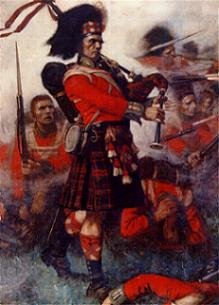Darcy James Appleyard
At the time World War One began, 20 year old Darcy was working on
the family farm in Binginwarri, South Gippsland, with his parents.
“Great,
sleek, corpse-fed rats ran in squads between our legs and over our feet as we
stood. Their obscene squeaking could be heard at all times. Some men conceived
an unmeasured hatred of these loathsome things, and were always trying to
slaughter them. I wondered, as I stood, did they picture themselves as those
scattered corpses- a prey to these. Imagination is decidedly not good for a
soldier.“ (1)
The
sixth son of George and Jane Appleyard, by August, 1915, four of his brothers had already
joined the army with Gordon in Turkey, Charles and Allan in the Western Front
and Richard in the Middle East. Now aged 21, and legally old enough
to join the war efforts, Darcy would make the decision to follow his brothers
into the theatre of war.
The local paper, the Gippsland Standard proudly reported the enlistments,
feeding the hope and pride of the families writing, “our boys have responded
well to the call of ‘King and Country’. In fact, we have very few of
eligible age remaining in the district.”
Enlisting on August 12, 1915, it would be almost 6 months later when Darcy
would embark on the HMAT Warilda on February 8, 1916, disembarking in
Marseilles, France, in March before joining the 9th Reinforcement of
the 23rd Battalion in May.
Transferred to the Somme in July 1916, Darcy would play a part in the Battles
of Pozieres and Mouquet Farm, battles which would hit the battalion hard with
almost 90% casualties. It was during this time that Darcy would be
evacuated with a shrapnel wound to his left arm. Injured on July 28,
Darcy would be sent to the Casualty
Clearing
Station on the 29th before being evacuated on the 30th, reaching the
Number 6 Convalescent Depot in Boulogne on August 9.
His parents, Jane and George received a telegram from the Victoria Barracks
advising them of Darcy being wounded on August 22 but with no further detail,
however, by this time, Darcy had already re-joined the Battalion. Over
the next 12 months, Darcy would follow the German troops to the Hindeburg line
and fight in the Second Battle of Bullecourt.
Conditions around the Western Front were harsh, even without the threat of
being killed by the enemy, and the soldiers found themselves sharing their
lodgings with rodents, seemingly the only living thing that could thrive in
war.
In addition to the gunfire and bombing, illness was a major issue
for the soldiers and in July 1918, Darcy would be transferred to the Army
hospital with diarrhoea. He would remain here for two weeks. During
this time, the 23rd Battalion would be removed from the front line
with the 3rd Battalion relieving them.
Darcy would go to England in September, returning to France in October around
the time his Battalion was withdrawn from the front line on the orders of Billy
Hughes, the Australian Prime Minister. Armistice would be declared on
November 11 and Darcy would take no further part in fighting.
With the 23rd Battalion disbanded in Belgium on April 30, 1919,
Darcy would finally leave the horrors of Europe on the 29th May, on
the Rio Negro, arriving home on July 19, aged 25.
Darcy
would remain on the family farm until his father George died in 1921, and, two
years later he would marry his wife Amy, starting a new life in Culcairn, New
South Wales which would see him become the proud father of two boys, Percy and
Keith.
Sadly,
Amy would pass away in 1939 but Darcy would remain in Culcairn with his sons
until his own passing 30 years later in 1971, aged 77.
Darcy James Appleyard
Born: 1894, Alberton, Victoria,
Australia
Died: Jan 5 1971, Culcairn
NSW
Relationship
to Peter Appleyard: Grandson
Image: Darcy Appleyard
Quote
(1):
Mitchell,
G D 1937, Backs to the wall, Angus
& Robertson, Sydney, N.S.W.

.jpg)

Comments
Post a Comment